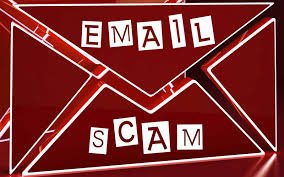Joe Bruno sent along a handy-dandy sheet of telephone numbers for reporting fraud and identity theft to the financial/credit entities, Social Security Administration, and the Federal Trade Commission. Well done, Sir!
You might want to keep these within reach just in case . . .
Telephone Numbers To Report Fraud and Identity Theft
(As of September, 2023)
Bank of America 800-432-1000
CapitalOne 800-227-4825
Chase 800-935-9935
Citi 800-950-5114
Citizens Bank 800-922-9999
M&T Bank 800-724-2440
Merrill Lynch 800-637-7455
Morgan Stanley 888-454-3965
PNC Bank 888-762-2265;
800-762-2035
TD Bank 800-893-8554
888-561-8861
U.S. Bank 866-821-8411
866-737-6844
877-595-6256
Wells Fargo 800-869-3557
Equifax 888-766-0008
Experian 888-397-3742
TransUnion 800-680-7289
Social Security 877-438-4338
Federal Trade Commission (FTC):
877-438-4338
Quotable Quotes & Questions
Shouldn’t someone be making the word “efficiency” into one syllable?
Contributed by Peter Roggemann
E-Mail Safety: Guarding Against Phishing
Phishing: the fraudulent practice of sending emails or other messages purporting to be from reputable companies in order to induce individuals to reveal personal information, such as passwords and credit card numbers.
Ellen Ottstadt sent along a “How to” for protecting against such scams.
Phishing-on-the-Hudson
Opening email these days is almost as dangerous as crossing a highway in traffic. It's essential to keep your eyes open for phishing tricks. All email scams try to catch you off guard. So, if you get an email urging you to act quickly to prevent a financial catastrophe or to get a reward, STOP. Take a while to catch your breath and think. Look for the following signs that indicate you may be scammed:
1. The email is not addressed to you by name but to "Customer" or maybe to no one in particular.
2. Check the email address from which the email originated. It's usually in the upper left-hand corner of your screen. If the sender's address looks fishy, the email is suspicious.
3. Appeals to greed. You did not win the Irish sweepstakes or any gift. Don't click to find out further information.
4. Appeals to fear. If you are worried about a surprise charge on your credit card, contact your bank or credit card company directly, NOT using the link provided in the email.
5. Convinced you have received a phony communication? DELETE it. This may not be enough, so you should look in your trash folder and delete the contents.



